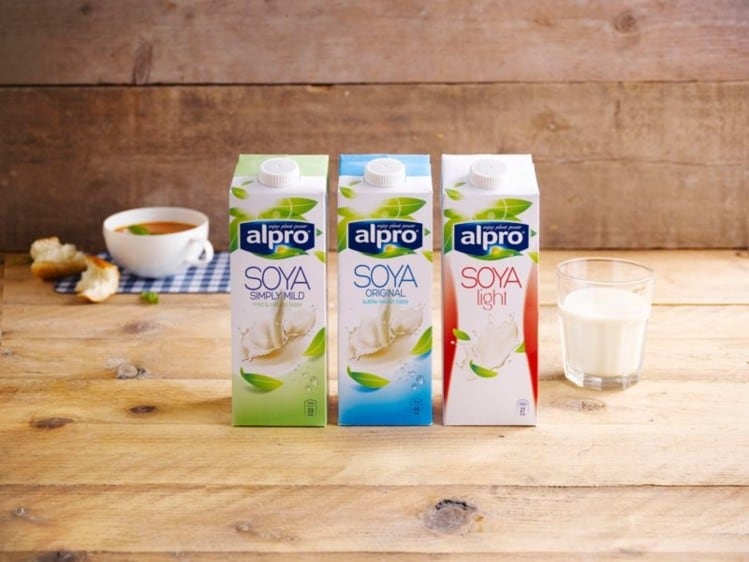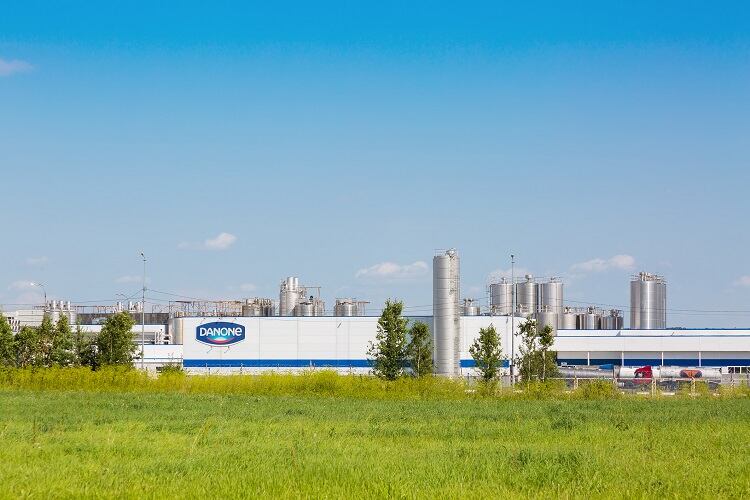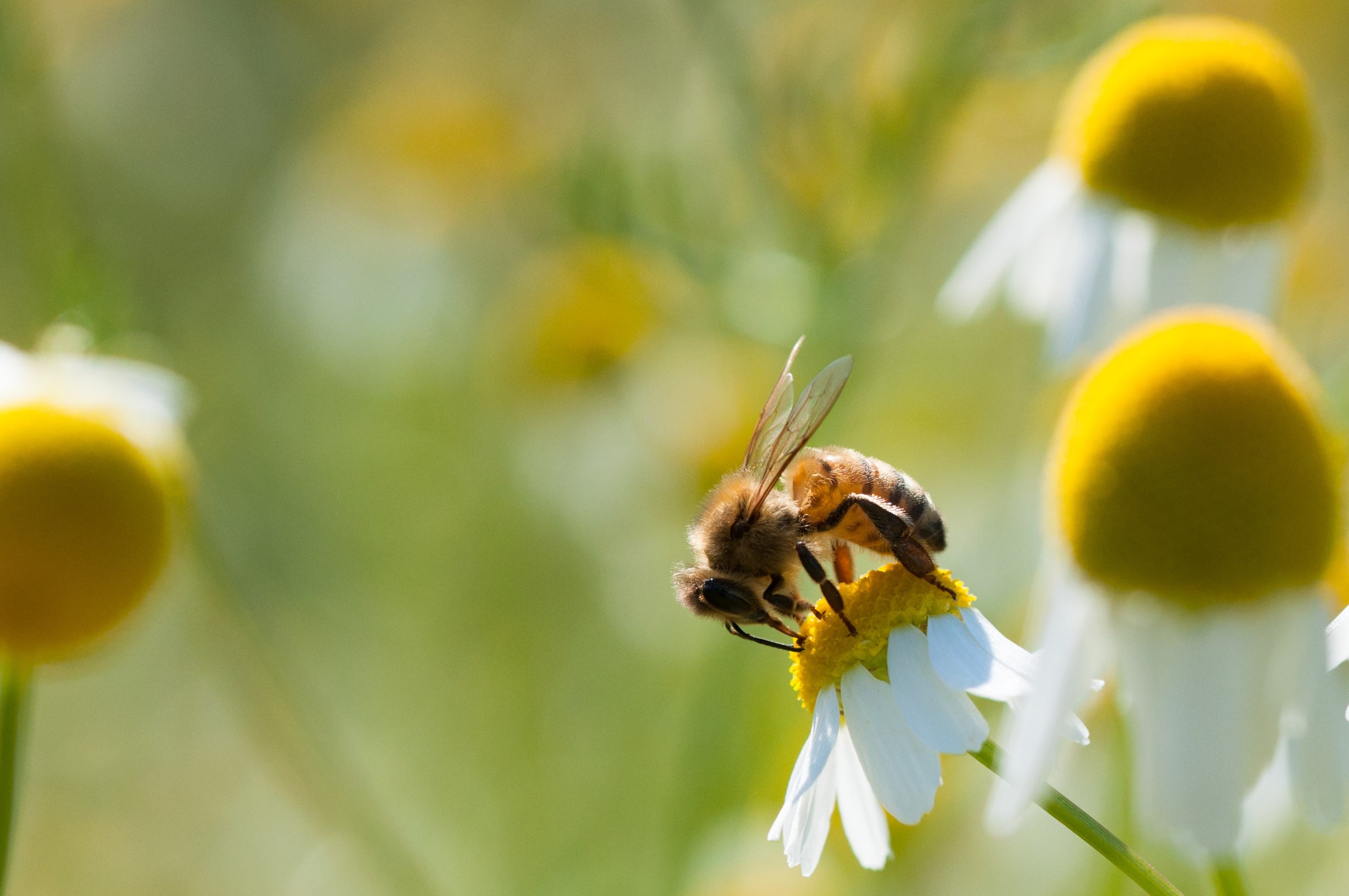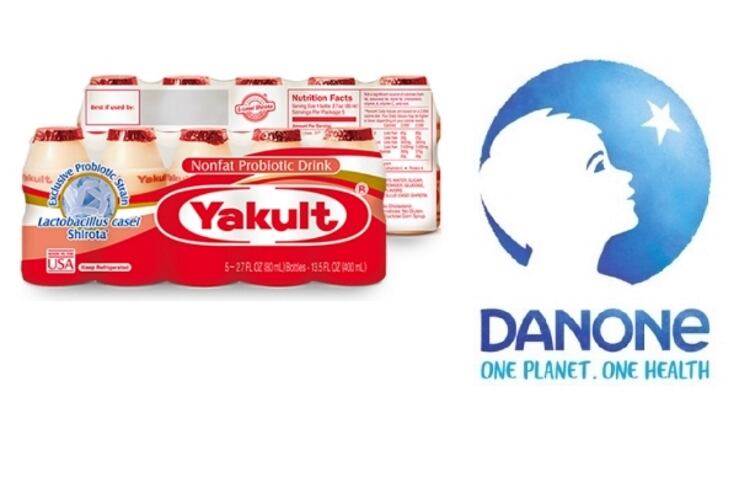The coronavirus crisis has had a mixed impact on Danone’s business.
It has accelerated consumer interest in healthy food, boosting growth of the firm’s plant-based products, CEO Emmanuel Faber revealed today. In particular, he pointed to interest in immunity – a trend that has boosted the company’s fermented proteins and probiotics brands. However, it has also brought parts of Danone’s waters business – that which supplied out-of-home consumption – to a standstill. And, like other food businesses, Danone has had to absorb increased expenses associated with additional health and safety precautions during the pandemic.
These market dynamics have squeezed Danone’s like-for-like sales since the onset of the pandemic. The second quarter saw comparable sales drop 5.7% - a decline that was successfully slowed to 2.5% in the most recent third quarter. However, pre-pandemic growth stood at 3.7% in the first quarter of this year.
The changes accelerated by COVID leave Danone facing a dilemma, Faber continued: “The paradoxical situation where on one hand, our ‘One Planet. One Health’ frame of action anchored in a portfolio of healthy and sustainable products and brands is even more relevant in today’s world, but on the other hand we are unable to fully reap the benefits of the current positive trends nor face in an optimal way their challenges. Our recent results evidence this. We definitely need to reinvent ourselves, as a company, very much like all of us are doing it in our own ways of living, working or consuming.”
To this end, Danone unveiled plans to ‘reshape’ its business into a more efficient, ‘local-first’ organisation this morning (23 November). According to the assessment of Danone’s management, much of the solution, it would seem, lies in cost cutting.
The company said it will deliver €1bn cost savings by 2023, including €300m from reduced cost of goods and €700m related to general and administrative costs, representing around a 20% reduction in overheads costs.

A leaner ‘local first’ organisation
Faber believes that the biggest impact COVID-19 has had on the food sector is that local agility has become increasingly important.
“In this reinvention of food, the most prominent paradigm accelerated by the pandemic is undoubtedly the trend toward local. It is a systemic evolution whereby the diversity of dietary habits rooted in their local cultures is now considered as a key security and resilience factor for global food systems. It is also a major political trend with the strong emergence of national food sovereignty narratives in many countries. It is finally and for long a consumer trend where many perceive local as a way to regain control over their food.”
The company plans to strip back its multinational corporate apparatus to allow its local business units to ‘regain autonomy’ and become as close as possible to ‘consumers and the field’. Rather than global category teams, the business will be organised under two regional CEOs – for North America (~20% of sales) and International (~80%) – both of whom will report directly to Faber.
“By giving power back to countries, we will regain agility, by shortening our decision-making processes: for instance by having only two decision-making levels on capital expenditure where there are five today or two levels to manage a brand like Activia where there are four today. By doing this, we will profoundly change the nature of the role of our headquarters because central functions will have a new role essential to serving the competitiveness of our countries,” Faber explained.
Danone will cut between 1,500 and 2,000 jobs from its global and regional headquarters – including an expected quarter of the current jobs at its global HQ in Paris.
Through this shake-up, Danone will ‘gain efficiency and competitiveness’, Faber claimed. It will work ‘hand-in-hand’ with the company’s drive to digitalise its supply chain, an effort Faber believes will ‘allow us to access new sources of productivity’.
A ‘strong ambition’ on margins
This focus on cost and profitability also prompted management to unveil a new margin target.
Faber said that COVID-19 has highlighted just how exposed the business is to external shocks. This, he said, means it is prudent to build a margin buffer into planning to protect profitability.
“I want to insist on the utmost importance of the profitability of our model, because this year has shown that the competitiveness of our businesses, of our brands, in our countries could be destabilized by strong and brutal external factors. All this makes me deeply convinced that, for us to be able to continue to invest for the long-term, in health, in agriculture, in our ecosystems, fundamentally to fulfil our mission, we have to quickly and sustainably add a safety margin to the level of the operational profitability of our business.”
Taking into account the €1bn cost savings plan, the company now targets mid-term recurring operating margin to reach mid-to-high teen levels, with the first milestone to be above 15% in 2022.
Reflecting the austere mood of Danone’s boardroom, Faber insisted that this ‘strong ambition’ for margin improvement will not come through growth, but through driving costs out of the business.
“We can’t just wait for growth to bring it. We must build this ambition from an agenda that we can own and is in our hands. And that is: how we organize ourselves, our ways of working, our efficiencies, and the operational optimization of our portfolio.”
The company will kick off a strategic review that includes ‘full brands, SKUs and assets’, Faber revealed during a conference call. It will begin in Argentina with a review of the Vega brand. But this is just an ‘immediate step’ – ‘other assets will be reviewed’. All in, Danone expects to cut its number of SKUs by 10-30% in the next year, stripping out smaller lines that account for around 2% of total sales.
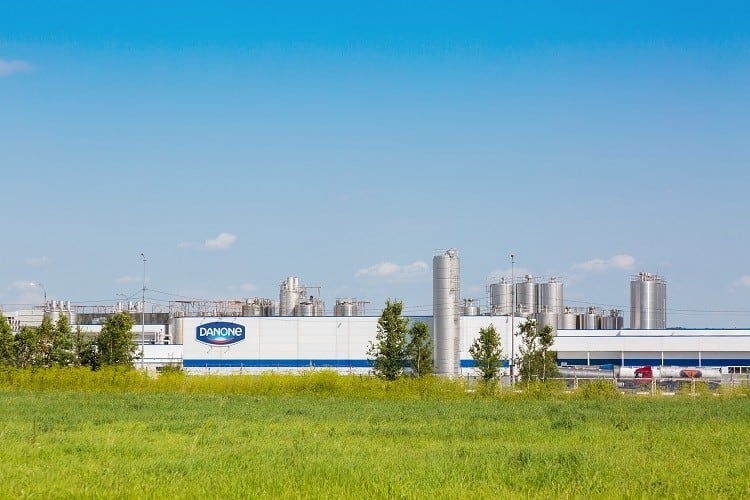
But can you cut your way to growth?
Danone also confirmed its mid-term ambition of achieving 3-5% ‘profitable’ like-for-like sales growth. It will invest 20-30% of the savings made in growth initiatives, management revealed.
This nod to the need to invest in brands and growth was far overshadowed by the grim determination to make operational savings.
“The focus of this release is almost entirely on cost cutting rather than what they will do to accelerate growth,” Bernstein analyst Bruno Monteyne observed.
Indeed, the new margin target – designed to give the company a safety net in the face of external shocks – is actually a cause for concern, the analyst continued.
“We worry about such margin targets and cost savings focus. Margin targets lead to the lack of innovation and market share losses to both challenger brands and private label,” he warned. “Danone is doubling down on a strategy that hasn't worked for the last 5 years.
“Profitability comes from brand strength: to what extent can their brands engage with consumers. Innovation in the products in brands is, in our view, what [Danone] needs to reinvigorate growth. Its cost focus is what got it into the current low growth dynamic.”
Monteyne’s assessment of how margins should be built comes in polar opposite to that of Faber. The Bernstein analyst suggests that growth – not cost cutting – is the key to stronger profitability.
“We don't think it is good to decouple margin growth from sales growth. Margin growth should be an outcome of higher sales growth or brands that inspire consumers more strongly than they did before. We think the corporation's energy and focus should be on innovation and branding rather than redundancies and new organisational structures. Clearly the company is unhappy about how the company was managed by the centre; but there isn't much analysis of why it went wrong in the centre or why local teams will do a better job,” he warned.
It would seem that the may market agree. Danone shares were trading down 2.5% at time of press this afternoon, bringing the share price drop in the year-to-date to just over 30%.

